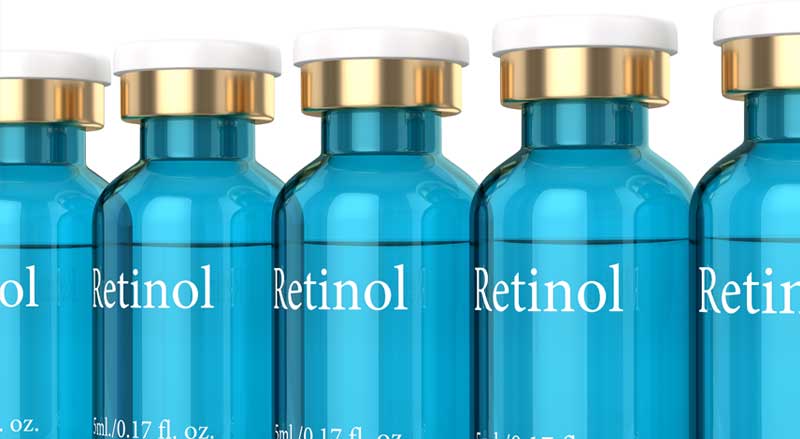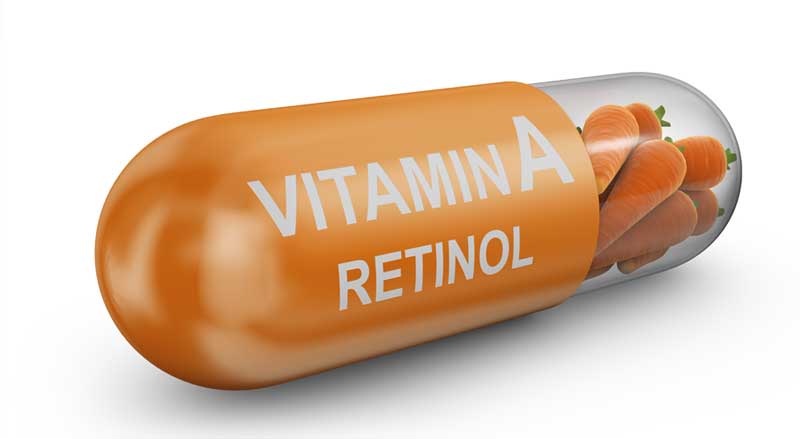The Power of Retinol and How To Use It in Your Skincare Routine
Posted on |

Retinol is an important skincare ingredient that promotes healthy, glowing, and youthful skin. In fact, many skincare experts believe retinol is one of today’s most-effective skincare product components.
However, despite all its benefits and accolades, a lot of confusion and misconceptions still surround retinol, which makes some people hesitant to include it in their skincare regimen.
Rather than miss out on the exciting benefits of retinol, take a few minutes to learn about the power of retinol and how to use it in your skincare routine.
What You May Have Heard
If you’re hesitant to use retinol, or used it unsuccessfully in the past, this post is for you. Here you can learn how to start using retinol properly to enhance your beauty routine.
A major part of proper retinol use is to start off slow and allow adequate time for it to work—you’ll likely see fabulous results in just a few months.
What Is Retinol?

Retinol is simply an ingredient—vitamin A—that’s included in many skincare products. It can be found in creams, liquid serums, gels, or emollients.
Vitamin A is a fat-soluble vitamin that is commonly found in food. It’s also used as a dietary supplement to help with vision, maintenance of the skin and mucous membranes, and some health issues.
Retinol improves skin cell turnover, thereby reducing the signs of aging—it keeps skin younger and fresher looking.
Today, retinol enjoys a reputation as one of the most important skin care ingredients and takes its place alongside other outstanding skincare product components, including:
- Hyaluronic acid
- Alpha hydroxy acids
- Vitamin C
Retinol vs. Retinoids
You’ve probably heard of both retinol and retinoids. Retinoids are skincare products that contain vitamin A. Retinol is a type of retinoid.
Retinoids
Retinoids include all synthetic and natural vitamin A derivatives. For example, retinoic acid is an oral medication used to treat acne and a form of leukemia.
Retinoids also include skincare products that are only available by prescription. Their increased strength offers greater benefits, but they also can cause more side effects.
Prescription retinoids are primarily used to treat skin issues such as acne and severe acne scarring.
However, they can also be used by patients to achieve plumper, smoother, and younger-looking skin.
Their high concentration and ability to cause faster cell turnover allows patients to see results sooner.
Retinols
Retinols are over-the-counter versions of retinoids. Consumers purchase these items to treat a variety of skin issues.
Retinol not only increases the rate of skin turn over and regeneration—it also supports greater collagen production in the skin. This skin exfoliation results in the appearance of smoother and younger-looking skin.
The maximum concentration level recommended for over-the-counter retinol is 1 percent. However, some skin care products help skin at levels as low as 0.01 percent.

Retinols in over-the-counter skin care cosmetic products can help with anti-aging and skin rejuvenation issues. The results are:
- Diminished skin dullness
- Improved elasticity
- Improved tone and texture
- Reduced dryness and facial lines
- Decreased pore size
- Smoother and firmer skin
- Minimized fine lines and wrinkles
- A more even skin tone
Retinol may take longer to show results than other retinoids, but you will see skin improvement over time.
In fact, your skin condition may appear to have worsened temporarily as your skin adjusts to your new product. This adds to the common confusion surrounding retinols.
Here are more ways to achieve glowing skin.
How To Start Using Retinol

The following tips will help you use retinol effectively to achieve glowing and youthful skin:
- Use your retinol product at night before bedtime because sunlight can deactivate vitamin A’s effectiveness.
- Wash and dry your face first and then apply a pea-sized amount (a little goes a long way) of the retinol product and spread it out into a thin layer on your face. If you want to reduce the chance of irritation, moisturize your face first before you apply the product.
- Remember, applying more retinol won’t give faster results but may cause more irritation.
- Avoid putting product on sensitive areas such as under the eyes. You may want to use an even gentler retinol product here.
- For the first few weeks, use every three days until your skin adjusts. If you don’t see any adverse effects such as flaking, redness, or irritation, move application frequency up to every other day.
- Eventually you can use the product every day if your skin remains calm and not irritated.
- Finish your nighttime routine with a moisturizer.
- Always use sunscreen during the day to protect your face since retinol makes your skin more sensitive to UV radiation.
If you want to start your treatment extremely slowly, apply moisturizer both before and after application of your retinol product as directed above.
Moisturizer will not dilute the retinol but can help prevent irritation. Otherwise just apply moisturizer at the end of your routine.
Stay faithful to this routine and you can expect to see some wonderful results starting at around 12 weeks.
Here are helpful ways to care for your sensitive skin.
Read about the foundations of a healthy skincare routine.
Don’t Combine These Two Beauty Treatments
Retinol and vitamin C (protects from oxidative free radical damage) both play important roles in skincare.
However, don’t use the two items together at the same time, or your skin can become irritated. Use retinol at night and vitamin C in the morning.
Who Shouldn’t Use Retinol?
Although retinol is a remarkable skincare treatment, it isn’t right for everyone.
If your skin is overly sensitive, you may want to avoid these products. People prone to allergic reactions or with food intolerances should also avoid retinol until they consult with their skin care specialist or dermatologist.

If you are pregnant or nursing, don’t use retinol. High doses of vitamin A have proven to be harmful to an unborn child.
At Vibrance MedSpa, we offer rejuvenating skincare treatments, professional skincare products and non-surgical aesthetic medical treatments. Contact us today for a complimentary consultation.
